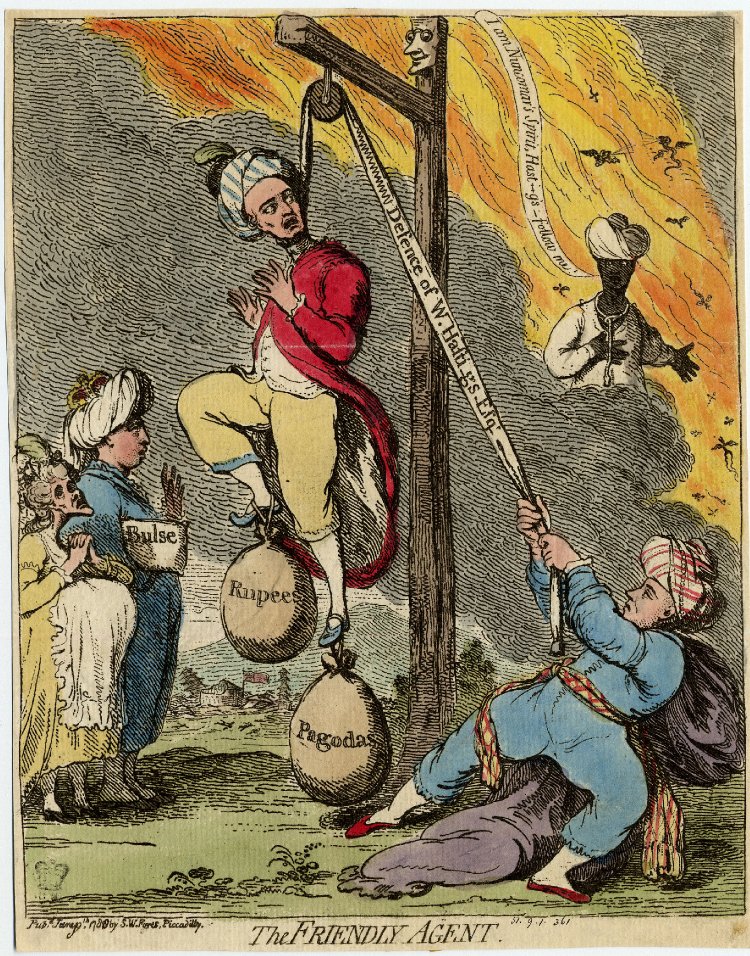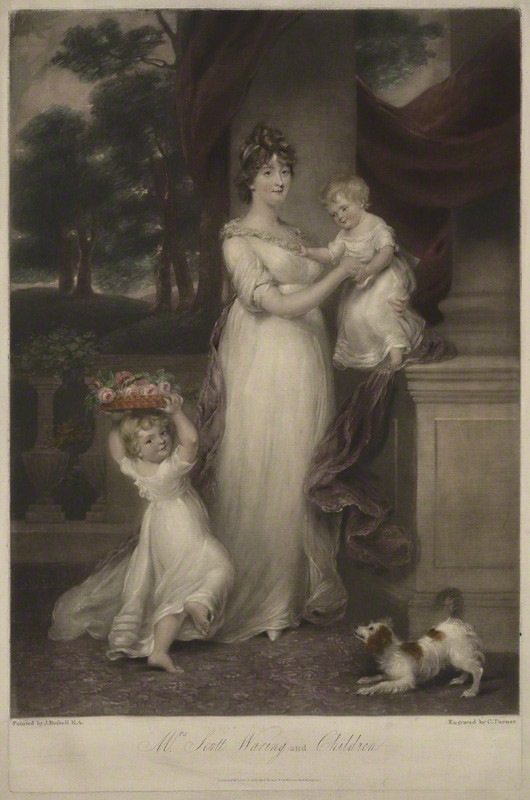John Scott (1747–1819) on:
[Wikipedia]
[Google]
[Amazon]
John Scott-Waring (at first John Scott) (1747–1819) was an English political agent of 

 #His first wife, who brought him a fortune, was Elizabeth, daughter of
#His first wife, who brought him a fortune, was Elizabeth, daughter of
Online Books page
;Attribution {{DEFAULTSORT:Scott, John 1747 births 1819 deaths Members of the Parliament of Great Britain for English constituencies English writers English male writers
Warren Hastings
Warren Hastings (6 December 1732 – 22 August 1818) was a British colonial administrator, who served as the first Governor of the Presidency of Fort William (Bengal), the head of the Supreme Council of Bengal, and so the first Governor-Genera ...
, publicist and Member of Parliament.

Early life
Born atShrewsbury
Shrewsbury ( , also ) is a market town, civil parish, and the county town of Shropshire, England, on the River Severn, north-west of London; at the 2021 census, it had a population of 76,782. The town's name can be pronounced as either 'Sh ...
, his father was Jonathan Scott of Shrewsbury (died August 1778), who married Mary, second daughter of Humphrey Sandford of the Isle of Rossall, Shropshire. The second son, Richard, rose to the rank of lieutenant-colonel, and served under Sir Eyre Coote against Hyder Ali Khan. The third son was Jonathan Scott the orientalist. The fourth son, Henry, became commissioner of police at Bombay.
John, the eldest son, entered the service of the East India Company about 1766, and became a major in the Bengal division of its forces.
In India
Scott had been in India for twelve years before he knewWarren Hastings
Warren Hastings (6 December 1732 – 22 August 1818) was a British colonial administrator, who served as the first Governor of the Presidency of Fort William (Bengal), the head of the Supreme Council of Bengal, and so the first Governor-Genera ...
more than casually. They became close, and he was one of the intermediaries who, in November 1779, patched up a temporary reconciliation between Hastings and Philip Francis. In May 1780 he was appointed to command a battalion of sepoys.
Political agent in London
Scott was sent by Hastings to England as his political agent, and he arrived in London on 17 December 1781. Scott was profuse in his expenditure for his patron. From 1784 to 1790 Scott sat in parliament as member forWest Looe
West or Occident is one of the four cardinal directions or points of the compass. It is the opposite direction from east and is the direction in which the Sun sets on the Earth.
Etymology
The word "west" is a Germanic word passed into some ...
, and in 1790 he was returned for Stockbridge in Hampshire. A petition was presented against him, and in February 1793 a prosecution for bribery seemed imminent, but the matter fell through.
Impeachment of Hastings
The charges against Warren Hastings might have been allowed to drop, but Scott remindedEdmund Burke
Edmund Burke (; 12 January NS.html"_;"title="New_Style.html"_;"title="/nowiki>New_Style">NS">New_Style.html"_;"title="/nowiki>New_Style">NS/nowiki>_1729_–_9_July_1797)_was_an_ NS.html"_;"title="New_Style.html"_;"title="/nowiki>New_Style"> ...
on the first day of the session of 1786 of the notice which he had given before the preceding recess of bringing them before parliament. Scott asked Burke to name the first day that was practicable; Burke opened the subject on 17 February. Fanny Burney (''Diary'', ed. 1842, iv. 74–5) commented on Scott "skipping backwards and forwards like a grasshopper".

Later life
In 1798, by the death of his cousin, Richard Hill Waring, Scott came into the Waring estates inCheshire
Cheshire ( ) is a ceremonial and historic county in North West England, bordered by Wales to the west, Merseyside and Greater Manchester to the north, Derbyshire to the east, and Staffordshire and Shropshire to the south. Cheshire's county t ...
, which he sold in 1800 to Peel and Yates (the company of Sir Robert Peel, 1st Baronet
Sir Robert Peel, 1st Baronet (25 April 1750 – 3 May 1830) was a British politician and industrialist and one of early textile manufacturers of the Industrial Revolution. He is one of ten known British millionaires in 1799.
He was the father ...
) for £80,000. He then assumed the name and arms of Waring. A year or two later he bought Peterborough House at Parson's Green
Parsons Green is a mainly residential district in the London Borough of Hammersmith and Fulham. The Green itself, which is roughly triangular, is bounded on two of its three sides by the New King's Road section of the King's Road, A308 road a ...
, Fulham, and gathered around him varied company: royal princes, politicians, wits, and actresses.
Scott-Waring died at Half Moon Street, Piccadilly
Piccadilly () is a road in the City of Westminster, London, to the south of Mayfair, between Hyde Park Corner in the west and Piccadilly Circus in the east. It is part of the A4 road that connects central London to Hammersmith, Earl's Court, ...
, London, on 5 May 1819.
Works
In 1782 Scott published, in the interests of Hastings, his ''Short Review of Transactions in Bengal during the last Ten Years'', and, two years later, his ''Conduct of his Majesty's late Ministers considered'', 1784 (in it he dealt with the payments which he had made to the newspapers for the insertion of letters in defence of Hastings). Letters, paragraphs, puffs, and squibs were attributed to him. During the course of the impeachment (1788–1795) many letters, speeches, and pamphlets emanated from Scott. Scott also wrote: * ''Observations on Sheridan's pamphlet, contrasting the two bills for the better government of India'', 1788; 3rd ed. 1789. * ''Observations on Belsham's “Memoirs of the reign of George III,”'' 1796. * ''Seven Letters to the People of Great Britain by a Whig'', 1789. In this he discussed the questions arising out of the king's illness. A memoir of Hastings by Scott is in William Seward's ''Biographiana'', ii. 610–28.Christian mission controversy
On the subject of Christian missions in India Scott-Waring published ''Observations on the present State of the East India Company'' (anonymous, 1807 four editions). It contributed to a long-running debate on the religious toleration policy of the East India Company, in the face of missionary efforts. Thomas Twining (1776–1861), son of Richard Twining, wrote from 1795 against "interfering" in India with Christian missions. The year 1808 saw active controversy on the propagation on Christianity, in which Andrew Fuller andJohn Owen (1766–1822)
John Owen (1766–1822) was an English Anglican priest, a secretary on its foundation of the British and Foreign Bible Society.
Life
The son of Richard Owen, a jeweller of Old Street, London, he entered St Paul's School on 18 October 1777. He we ...
had become involved, with Scott-Waring replying to Owen. When John Weyland
John Weyland (1774–1854) was an English writer on the poor laws and Member of Parliament.
Life
Born on 4 December 1774, he was the eldest son of John Weyland (1744–1825) of Woodrising in Norfolk and Woodeaton in Oxfordshire, by his wife Eli ...
wrote an open letter to Sir Hugh Inglis
Sir Hugh Inglis, 1st Baronet (30 April 1744 – 21 August 1820) was an East Indies merchant and politician.
Inglis went to the East Indies in 1762, and returned in 1775. He was chosen as a Director of the British East India Company (EIC) in 1784, ...
in 1811, Scott-Waring replied to it.
''A Vindication of the Hindoos from the expressions of Dr. Claudius Buchanan, in two parts'' by "a Bengal Officer" (1808), was attributed to Scott-Waring (DNB first edition). It was in fact by Charles Stuart.
Family
Scott was three times married. #His first wife, who brought him a fortune, was Elizabeth, daughter of
#His first wife, who brought him a fortune, was Elizabeth, daughter of Alexander Blackrie
Alexander is a male given name. The most prominent bearer of the name is Alexander the Great, the king of the Ancient Greek kingdom of Macedonia who created one of the largest empires in ancient history.
Variants listed here are Aleksandar, Al ...
. She was born on 19 April 1746, and died 26 October 1796, being buried in Bromley churchyard, under a marble monument, with a long epitaph. She was the mother of two sons—Edward, a civil servant in Bengal; and Charles, who died young—and of two daughters, the elder of whom, Anna Maria, married John Reade of Ipsden House, Oxfordshire, was mother of Charles Reade
Charles Reade (8 June 1814 – 11 April 1884) was a British novelist and dramatist, best known for '' The Cloister and the Hearth''.
Life
Charles Reade was born at Ipsden, Oxfordshire, to John Reade and Anne Marie Scott-Waring, and had at leas ...
and Edward Anderdon Reade
Edward Anderton Reade, (15 March 1807 – 12 February 1886), was a British civil servant in India who served in Bengal from 1826 to 1860.
Career
On 10 February 1835 Reade was appointed as Joint Magistrate and Deputy Collector of Belah. On 8 ...
, and died 9 August 1863, aged 90; the younger, Eliza Sophia, married the Rev. George Stanley Faber
George Stanley Faber (often written G. S. Faber; 25 October 1773 – 27 January 1854) was an Anglican theologian and prolific author.
He was a typologist, who believed that all the world's myths were corrupted versions of the original st ...
.
#Waring's second wife was Maria, daughter and heiress of Jacob Hughes of Cashel.
#Waring's third wife was Harriet Pye Esten
Harriet Pye Esten or Harriet Pye Scott-Waring born Harriet Pye Bennett (1760s? – 1865) was an English actress and briefly a theatre manager.
Life
Esten was born in Tooting in or around the 1760s. She was the daughter of housekeeper Anna Maria ...
, a widowed actress.
References
External links
Online Books page
;Attribution {{DEFAULTSORT:Scott, John 1747 births 1819 deaths Members of the Parliament of Great Britain for English constituencies English writers English male writers